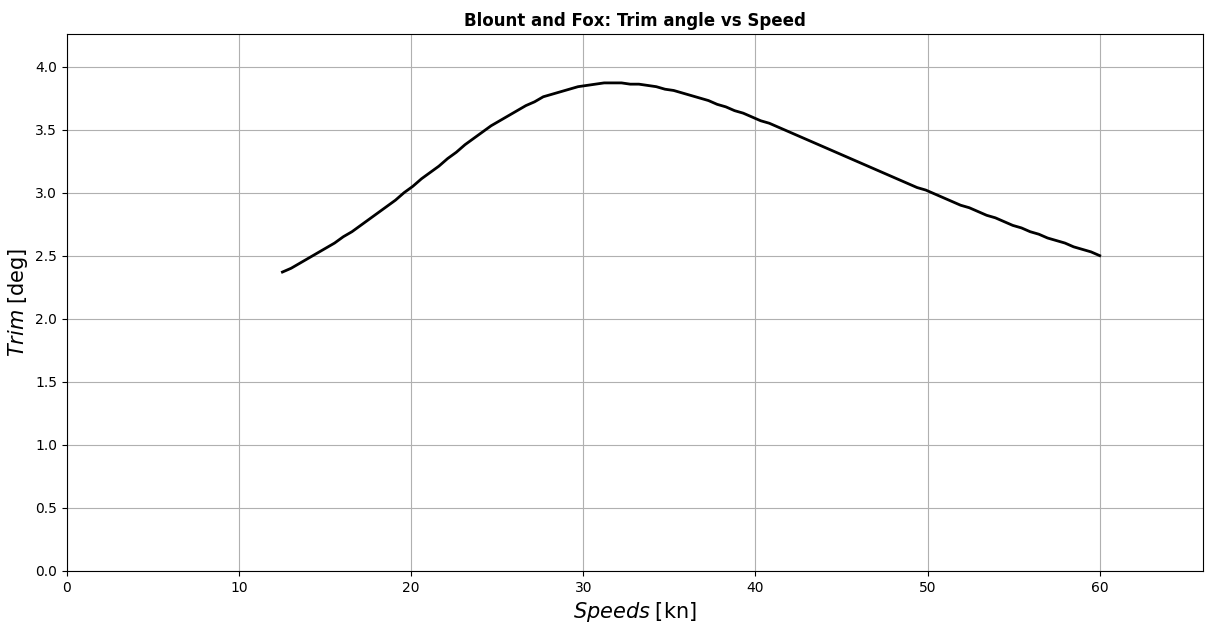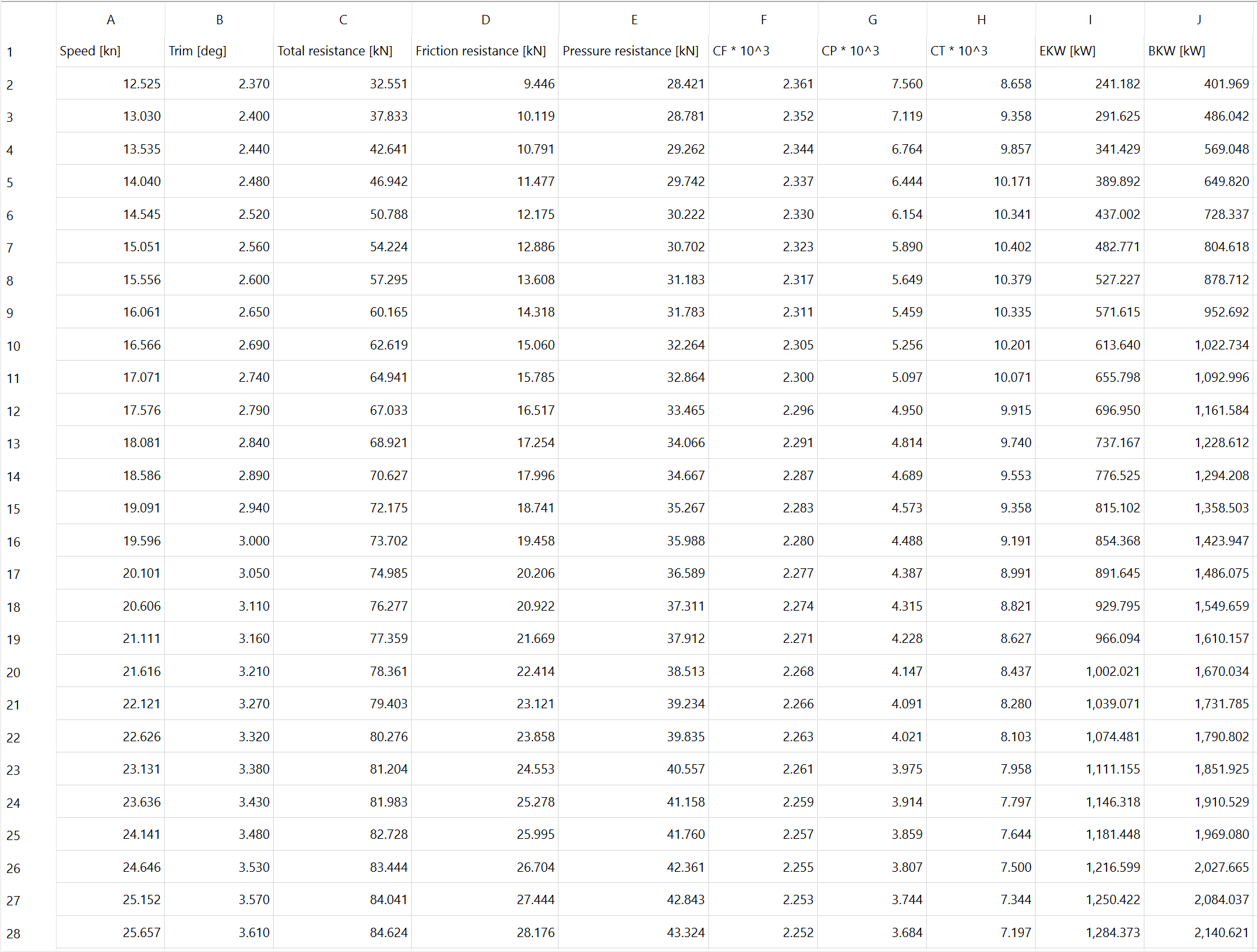Ship ResistanceBlountFox
|
|
| Menu location |
|---|
| Resistance → Resistance Blount and Fox prediction |
| Workbenches |
| Ship |
| Default shortcut |
| None |
| Introduced in version |
| - |
| See also |
| None |
Description
Calculates ship resistance by the Blount and Fox method. This method was formulated by Donald L. Blount and David L. Fox in 1976 [1], with application to fast vessels in a pre-planing regime. It is based on a Savitsky [2] correction at low speeds.
Plots the resistance curve, the equilibrium trim, the power prediction and the resistance coefficients. It also exports the results to a spreadsheet.
-
Resistance graph obtained by Blount and Fox method.
-
Equilibrium trim graph obtained by Blount and Fox method.
-
Power graph obtained by Blount and Fox method.
-
Resistance coefficients graph obtained by Blount and Fox method.
-
Spreadsheet generated by Blount and Fox method.
Resistance graph
The resistance is represented in kN, as a function of speed in knots. It includes the total resistance, the total resistance and the pressure resistance. The dialogue includes a checkbox to include both, Blount and Fox and Savitsky resistance curves in the graph, this allows the user to compare both methods resistance easier.
Trim graph
The equilibrium trim is represented in degrees, as a function of speed in knots.
Power graph
The power is represented in kW, as a function of speed in knots. It includes the effective power and the break power.
Coefficients graph
The resistance coefficients are adimensional, they are represented as a function of speed in knots. It includes the effective power and the break power.
Exported Spreadsheet Data
The spreadsheet contains the values of different variables for each evaluated speed, separated by columns.
| Variable | Unit |
|---|---|
| Speed | kn |
| Trim | ° |
| Total resistance | kN |
| Friction resistance | kN |
| Pressure resistance | kN |
| CF ×10³ | - |
| CP ×10³ | - |
| CT ×10³ | - |
| EKW (Effective Power) | kW |
| BKW (Brake Power) | kW |
Application limits
It must be taken into account that the obtained results represented in the graphs must be inside the application limits of the method.
The application limits of the Blount and Fox correction method are:
Where:
- is the volumetric Froude number, defined by the following expression:
- is the longitudinal center of gravity of the vessel.
- is the projected keel length of the vessel.
These limits extend the application of the Savitsky method to low-speed conditions.
Usage
This tool does not have a strict dependency on a Ship instance(see Ship CreateShip), which means that it is possible to use it introducing the necessary ship data values in the dialogue.
Using ship geometry
In order to execute the method, select a Ship instance and invoke Resistance → Resistance Blount and Fox prediction.
The ship data will be obtain from the ship and the user only needs to enter the boundary conditions. Data obtained from the vessel can be edited.
Using ship data
In order to introduced the ship data manually, invoke Resistance → Resistance Blount and Fox prediction and fill the dialogue fields.
Tutorials
References
[2] D. Savitsky, “Hydrodynamic design of planing hulls,” Marine Technology, Octubre 1964.
- Getting started
- Installation: Download, Windows, Linux, Mac, Additional components, Docker, AppImage, Ubuntu Snap
- Basics: About FreeCAD, Interface, Mouse navigation, Selection methods, Object name, Preferences, Workbenches, Document structure, Properties, Help FreeCAD, Donate
- Help: Tutorials, Video tutorials
- Workbenches: Std Base, Assembly, BIM, CAM, Draft, FEM, Inspection, Material, Mesh, OpenSCAD, Part, PartDesign, Points, Reverse Engineering, Robot, Sketcher, Spreadsheet, Surface, TechDraw, Test Framework
- Hubs: User hub, Power users hub, Developer hub







